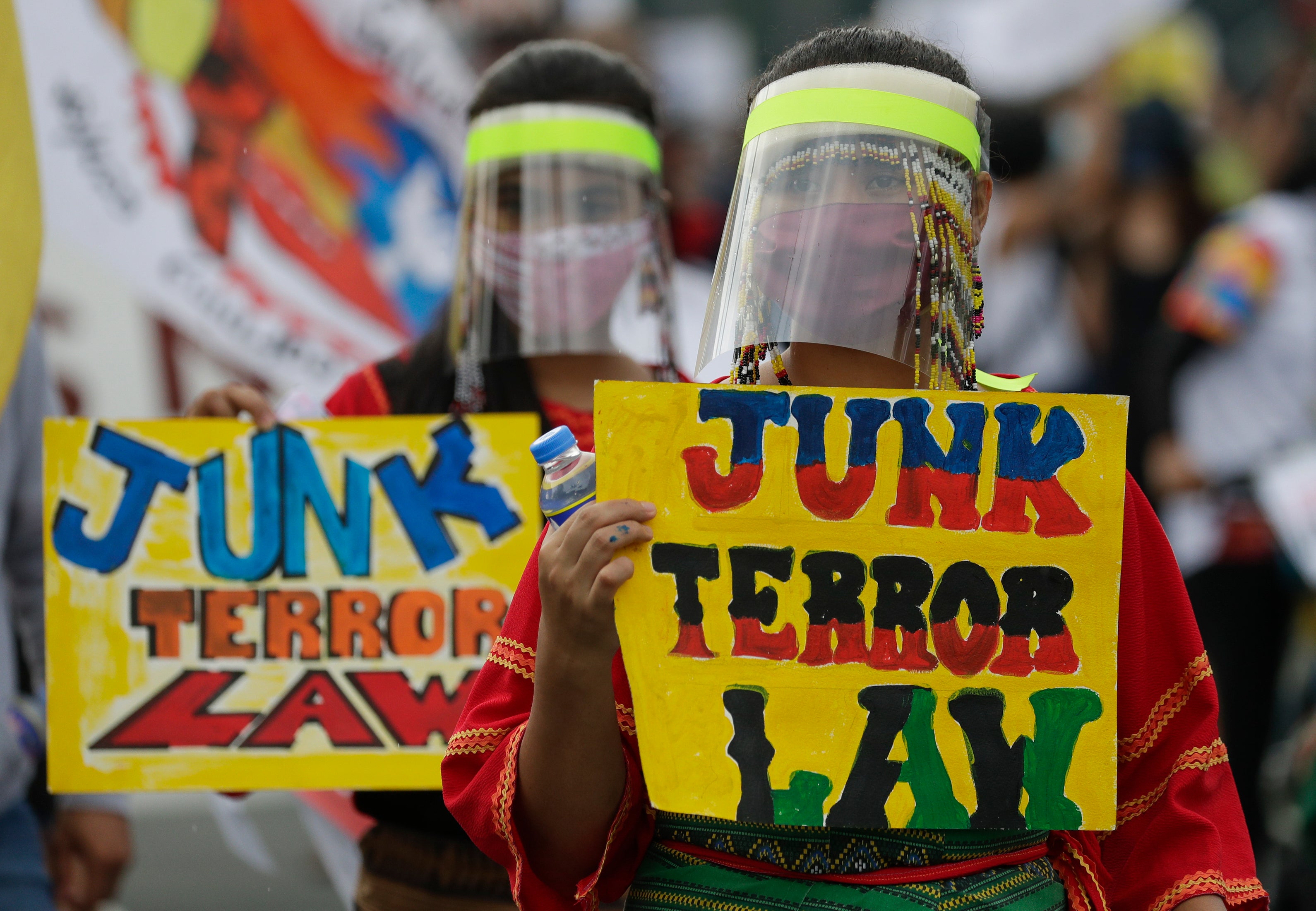Top Philippine court: Anti-terror law largely constitutional
The Philippine Supreme Court has largely upheld the legality of an anti-terrorism law that opponents fear could threaten democracy and muzzle dissent, but struck down a provision to prevent street protests, activism and labor strikes from being branded as terrorism by authorities

Your support helps us to tell the story
From reproductive rights to climate change to Big Tech, The Independent is on the ground when the story is developing. Whether it's investigating the financials of Elon Musk's pro-Trump PAC or producing our latest documentary, 'The A Word', which shines a light on the American women fighting for reproductive rights, we know how important it is to parse out the facts from the messaging.
At such a critical moment in US history, we need reporters on the ground. Your donation allows us to keep sending journalists to speak to both sides of the story.
The Independent is trusted by Americans across the entire political spectrum. And unlike many other quality news outlets, we choose not to lock Americans out of our reporting and analysis with paywalls. We believe quality journalism should be available to everyone, paid for by those who can afford it.
Your support makes all the difference.The Philippine Supreme Court largely upheld on Thursday the legality of an anti-terrorism law that opponents fear could threaten democracy and muzzle dissent, but struck down a provision preventing street protests, activism and labor strikes from being branded as terrorism by authorities.
The court’s decision, only portions of which were released, was generally welcomed by government officials. But left-wing activists and liberals expressed alarm, with a group of leftist lawmakers calling the ruling a “devastating blow to human rights” and another vowing to stage a protest against it on International Human Rights Day on Friday.
“We will march to the streets and amplify our voices against the perils of this terrifying law as well as the resurgence of any form or variant of authoritarianism,” said Edre Olalia of the National Union of People's Lawyers
Sen. Panfilo Lacson, who sponsored the legislation, praised the court decision, which he said generally upheld the legality of the law and would arm the government with a legal weapon in the battle against terrorism.
Many Filipinos remain hypersensitive to any threat to democracy more than three decades after an army-backed “people power” revolt ousted dictator Ferdinand Marcos in massive pro-democracy protests that became a harbinger of change in authoritarian regimes across the world.
Known as the Anti-Terrorism Act of 2020, the law allows the detention of suspects for up to 24 days without charge and empowers a government anti-terrorism council to designate suspects or groups as suspected terrorists who could then be subject to arrest and surveillance. It replaces a 2007 anti-terror law called the Human Security Act which was rarely used, largely because law enforcers feared a provision that imposed a fine of 500,000 pesos ($10,000) for each day they wrongfully detained a terrorism suspect.
Opponents filed 37 petitions asking the court to declare the current law, which was signed by President Rodrigo Duterte in July last year, unconstitutional. But except for at least two provisions, the court declared in a statement that all the other parts of the law which came under legal challenge “are not unconstitutional.”
Twelve of the 15 justices voted to strike out a line that says public protests, dissent, work stoppages and other exercises of political rights would not be considered as acts of terrorism as long as these “are not intended to cause death or serious physical harm ... or to create a serious risk to public safety.” They said the qualifying conditions were “overbroad and violative of freedom of expression.”
Nine justices also declared it was unconstitutional for the anti-terrorism council to be allowed to designate people and groups as terrorists based on the requests of other countries or international organizations.
The human rights group Amnesty International said the law “remains deeply flawed and open to abuse by government authorities” and renewed a call to the Philippine government to ensure the law is consistent with international human rights law and standards.
“Until this happens, the law will continue to pose a threat to human rights defenders, activists ... and others wrongly accused of terrorism by granting the government excessive and unchecked powers,” said Butch Olano, the Philippine director of the London-based group.